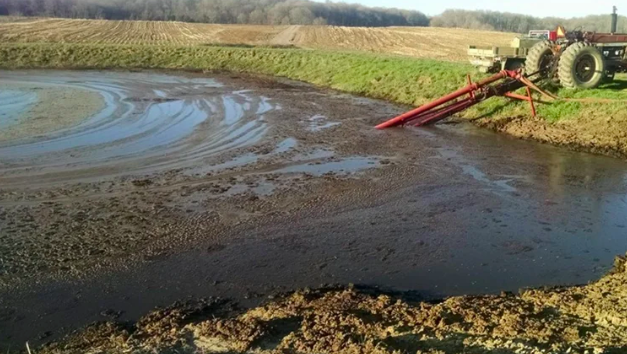
cow manure pond
The Wall Street Journal published a stinging critique of big agriculture’s impact on rural drinking water supplies, which they say are being spoiled “by fewer, more-intensively worked farms, bigger cows and shifting crop mixes.” These large farms are more productive than ever, but as a result, the percentage of U.S. drinking water with nitrates concentrations above safe levels is rising. One in seven Americans whose water comes from wells is at risk, particularly in rural areas. But urban areas are also contending with nitrate pollution — nearly 500 public water systems in the U.S. exceeded federal nitrate limits in 2016, according to Environmental Protection Agency data. Runoff from farms is largely exempt from federal regulation, particularly after the Trump Administration’s rollback of a major clean water act rule.
- manure, which farmers spread across millions of acres in the U.S., contains nutrients such as nitrates that researchers have associated with birth defects, thyroid problems, cancer and a potentially fatal condition in infants; and
- decades-old water, already contaminated with nitrates from a nationwide run-up in chemical-fertilizer usage, is sinking closer to drinking water aquifers in some areas.
The most interesting statistic — milk production per cow more than doubled between 1970 and 2017, according to the USDA. Farmers are growing less alfalfa to feed their animals and more corn, which requires more nitrogen fertilizer. Cows today are bigger than in the past, so they eat—and excrete—more. And farmers mix that cow poop with wastewater and increasingly use it for crop fertilizers — spreading the nitrate problem even further.
Often it is small water systems that end up paying the price for big farms upstream. “It’s a broken system,” Bill Stowe, chief executive of Des Moines Water Works told the Journal after his system lost a federal lawsuit in 2017 in which they tried to force three counties to clean farm runoff draining into the drinking water supply for Des Moines.
One solution is to plant cover crops such as oats and clover to soak up nutrients and put organic material back into the soil. Another one is to use tree bark to filter nitrates from water flowing from fields into culverts that lead to large lakes and rivers — in essence creating a man-made wetland to mitigate nutrient runoff.
Why This Matters: We have a clean water problem in this country and much of it is caused by agricultural practices that shift the cost of their pollution to rural neighbors and even to big city residents, whose drinking water is tainted as a result. This is not fair. And the Trump Administration’s de-regulatory policies make a bad problem worse. This is not about burdening small farmers with regulations — it is about getting big ag to pay for the mess they are making.
January 22, 2019 » agriculture, cows, dairy, drinking water, manure, nitrates, pollution, toxic, water

